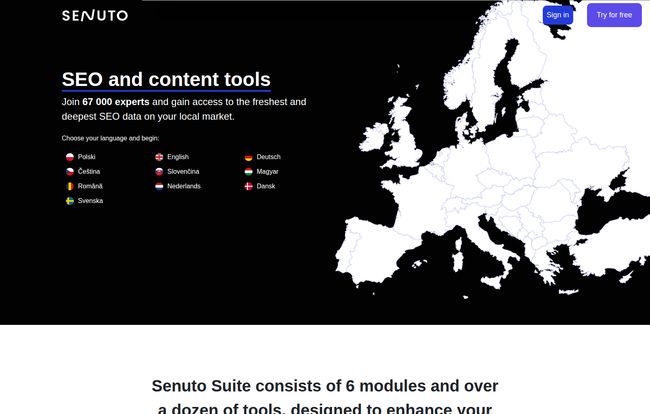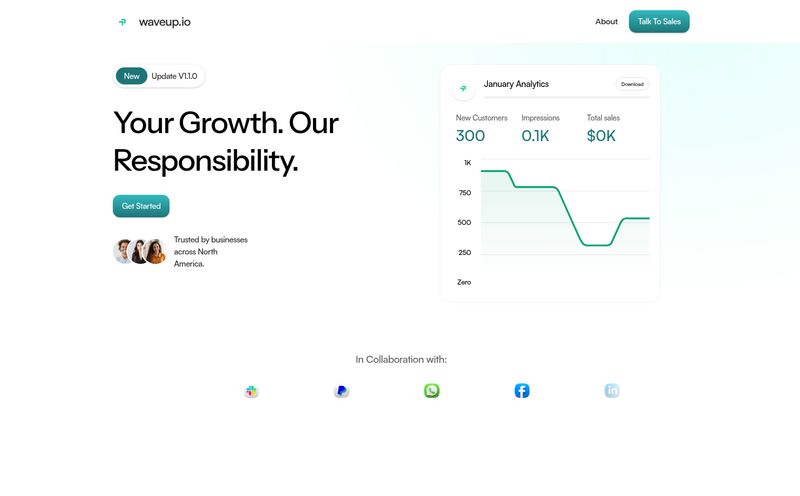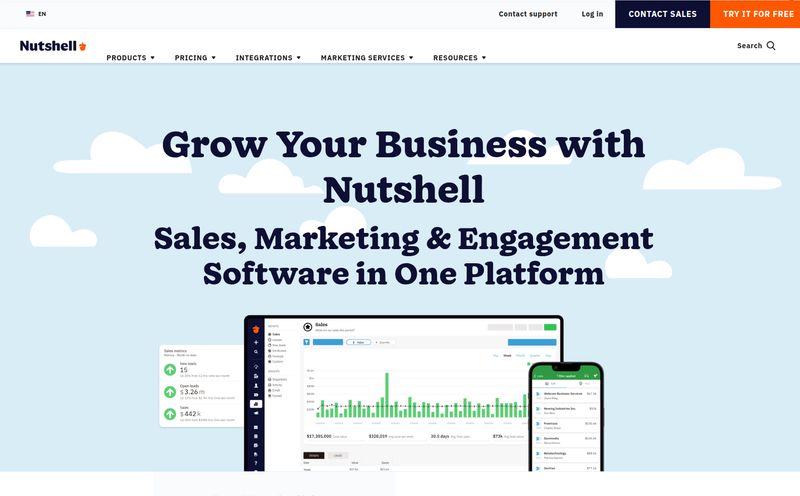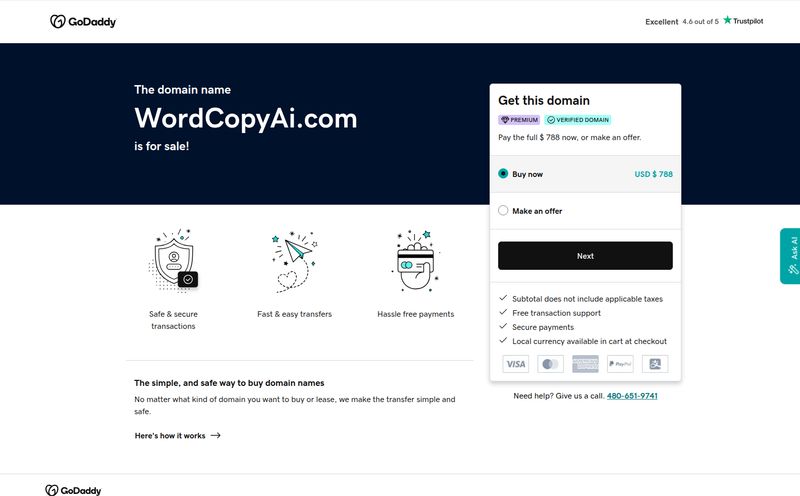As SEOs, we’re a bit like magpies, always chasing the next shiny object. A new tool promises to revolutionize our workflow, a new platform swears it has the 'secret sauce' for ranking number one. I’ve been in this game for years, and my bookmarks folder is a graveyard of subscriptions and free trials that didn't quite make the cut.
So, when I first heard about Senuto, I was skeptical. Another all-in-one platform? Great. But this one felt a little different. It wasn’t screaming from the rooftops in the US market; it had a quieter, more confident vibe, with deep roots in Europe. After spending some quality time with it, I have some thoughts. And yeah, I'm actually a little excited.
It’s not just another clone of the big guys. Senuto brings something different to the table, especially if you're working with clients or sites in specific European markets. Let's get into it.
First Impressions of the Senuto Suite
Logging into Senuto feels clean. It presents its six core modules upfront: Visibility Analysis, Keyword Explorer, Rank Tracker, SERP Analysis, Content Planner, and Content Writer. It’s like opening a toolbox and seeing every tool neatly in its place. For a seasoned pro, it’s comforting. For a newcomer, I could see how it might feel like, “Whoa, where do I even start?”

Visit Senuto
But that’s the nature of a comprehensive suite, isn't it? You wouldn't buy a whole socket set just to tighten one bolt. Senuto is built for those of us who need the whole set. It’s designed to take you from the very first spark of a content idea all the way to tracking its performance on the SERPs and analyzing your competitors’ every move.
What Senuto Does Really Well
Every tool has its star features, the ones that make you go, “Okay, this is cool.” For Senuto, it's not just one thing, but a combination of a few key areas where it really shines.
The Visibility Analysis Module is a Game Changer
This was the first thing that really grabbed me. We all have rank trackers, but the Visibility Analysis in Senuto is a different beast. It’s less about obsessively checking if you’ve moved from position 3 to 2 for one keyword, and more about getting a bird's-eye view of your entire domain's health in Google. It tracks your share of voice and shows you how you stack up against the competition in a really visual way.
Where it gets really interesting is its local market data. The platform boasts deep data for over 30 markets, with a clear focus on places like Poland, the Czech Republic, Romania, and Scandinavia. If you're running an international SEO strategy in Europe, this is huge. You're not getting extrapolated data; you're getting granular insights from the local SERPs. That's a massive advantage.
A Content Workflow That Actually Makes Sense
I’ve seen a million and one content tools, and most of them feel disjointed. You do keyword research in one place, planning in a spreadsheet, writing in a Google Doc, and optimizing in another tool. Senuto’s Content Suite tries to stitch that all together. You can move from the Content Planner, where you can map out entire topic clusters based on what people are actually searching for, directly into the Content Writer.
The writer itself is AI-powered, which is table stakes these days. But it integrates your keyword targets and SERP analysis data directly into the writing interface. It suggests headings, questions to answer, and terms to include based on the top-ranking pages. It’s not going to write a masterpiece for you—no AI can—but as a hyper-intelligent assistant, it dramatically speeds up the drafting process.
Data and Integrations for the Power Users
This is for my fellow data nerds. Senuto doesn’t lock its data in a cage. The Keyword Explorer is robust, and the SERP Analysis gives you a clear picture of who you're up against. But the real power move is the integrations. Being able to pipe Senuto data directly into Looker Studio (formerly Google Data Studio) is a dream for client reporting. And the integration with Make (formerly Integromat) opens up endless automation possibilities. You can create custom workflows that trigger tasks in Slack or update a Trello board based on ranking changes. It shows they understand how modern marketing teams actually work.
Where Senuto Could Improve
No tool is perfect, and it would be dishonest to pretend otherwise. Senuto's biggest strength—its sheer number of features—can also be its weakness. For someone brand new to SEO, the dashboard could be intimidating. There’s a definite learning curve to understanding how all the modules talk to each other. It’s something you have to commit to learning.
Also, the pricing model is something to be aware of. While the plans are reasonably priced for what you get, some of the more advanced features or higher data limits come as paid add-ons. This isn’t necessarily a bad thing, as it allows you to build a custom plan, but you need to factor that in when budgeting. No one likes surprise costs.
A Look at Senuto's Pricing Tiers
Speaking of pricing, let's break it down. Senuto operates on a pretty standard tiered model, billed annually for the best rates. As of my writing this, the plans are:
- Lite (€32/mo): Perfect for solopreneurs or small businesses just getting their feet wet with SEO and content.
- Basic (€66/mo): A solid step up for small teams, offering more projects and data.
- Advanced (€132/mo): Geared towards agencies and larger in-house teams who need higher limits and access to add-ons at better prices.
- Prime (€232/mo): The full-fat version for power users who need everything Senuto has to offer.
They also have this interesting system called Senucoin, which is a virtual currency you can use to purchase extra reports or data on-demand. I kind of like it. It feels like having a stash of tokens at an arcade – you can use them for a 'power-up' exactly when you need it without having to upgrade your entire plan. It's a flexible approach that more SaaS companies should consider.
Who Should Be Using Senuto?
So, who is this for? In my opinion, Senuto is a fantastic fit for a few specific groups:
- SEO Agencies and Freelancers: The ability to manage multiple projects and the strong local data make it a workhorse for client work, esspecialy those with a European footprint.
- In-House Marketing Teams: The collaborative content suite and reporting integrations are perfect for teams that need to demonstrate ROI and streamline their production.
- Businesses Targeting Europe: I can't stress this enough. If your primary market is in one of the countries Senuto specializes in, you should seriously give it a look. The data advantage is real.
Could you use it for the US or other markets? Absolutely. The core SEO principles and tools are universal. But its superpower is definitely its European data depth.
A Few Final Thoughts From a Fellow SEO
Look, the debate over all-in-one tools versus a collection of specialized 'best-in-class' tools will never end. I get it. But the time and money saved by having everything under one roof is a powerful argument. What I appreciate about Senuto is that it doesn't feel like a 'jack of all trades, master of none'. It feels like a master of European SERP analysis that also happens to have a very, very good set of tools for everything else.
I saw a testimonial on their site from Karol Soja, the Head of SEO at Onely, who praised the Visibility Analysis module. When guys like that are using a tool for their daily work, it adds a layer of credibility that a marketing slick can't buy. It tells me that this is a platform built by SEOs, for SEOs.
Is it going to make me cancel my Ahrefs or Semrush subscription tomorrow? Maybe not entirely. But is it a powerful, valuable, and perhaps even essential addition to my toolkit? Absolutely. For some projects, it's already become my go-to.
Conclusion
Senuto has carved out a fascinating space for itself in a crowded market. By focusing on providing incredibly deep data for specific local markets and building a truly integrated content and SEO workflow, it offers something genuinely unique. It’s a powerful platform that respects the complexity of our work and provides the tools to manage it effectively.
If you're tired of the usual suspects or have a specific need for top-tier European market data, you owe it to yourself to give Senuto a try. It might just be that shiny new tool that actually sticks around.
Frequently Asked Questions about Senuto
- What is Senuto best for?
- Senuto excels at visibility analysis and content marketing workflows, particularly for businesses and agencies targeting European markets like Poland, the Czech Republic, and Romania due to its deep local data.
- Is there a free trial for Senuto?
- Yes, the Senuto website indicates a "Try for free" option, allowing new users to test out the platform and its features before committing to a paid plan. It's a great way to see if it fits your workflow.
- How does the Senuto pricing work?
- Senuto offers four main subscription tiers (Lite, Basic, Advanced, and Prime) that are typically billed annually. Some advanced features or higher data limits are available as paid add-ons, and they also have a virtual currency called Senucoin for on-demand purchases.
- What makes Senuto different from other big SEO tools?
- Its main differentiator is the depth and freshness of its data for specific European markets. While other tools have global data, Senuto's focus provides a competitive edge for anyone doing SEO in those regions.
- Can I use Senuto for markets outside of Europe, like the US?
- Yes, the fundamental tools for keyword research, rank tracking, and content optimization are universal and can be used for any market. However, its most unique advantage lies in its specialized European datasets.
- What are Senucoins?
- Senucoins are a virtual currency within the Senuto platform. They allow you to buy extra data, reports, or analyses on an as-needed basis without having to upgrade your entire subscription plan, offering more flexibility.



